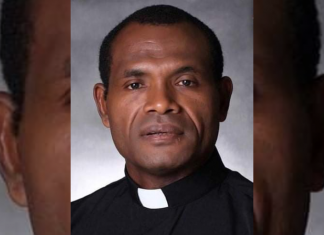 The Catholic Bishops’ Conference of the Philippines (CBCP) in an official statement last November 9 has expressed disappointment over the decision of the Supreme Court (SC) allowing the burial of former President Ferdinand Marcos in the Libingan ng mga Bayani, saying, “Marcos is no hero! He should not be presented as one.”
The Catholic Bishops’ Conference of the Philippines (CBCP) in an official statement last November 9 has expressed disappointment over the decision of the Supreme Court (SC) allowing the burial of former President Ferdinand Marcos in the Libingan ng mga Bayani, saying, “Marcos is no hero! He should not be presented as one.”
The Church said Marcos was an ousted dictator who did not deserve to be called a patriot or a hero.
The CBCP further said the decision of the SC would abet the worsening culture of impunity in the country.
“Burying Marcos in the Libingan ng mga Bayani will not bring peace and unity to the country,” said the CBCP. “Peace can only come if there is justice. Justice demands recognition of the harm done to the people and restitution to the victims.”
The CBCP has taken a valiant stand. The bishops remind the Duterte administration and the Supreme Court that wanted ostensibly to allow the Marcos burial in order to unite the nation that there the basis of unity is justice.
It was Marcos after all who divided and nearly destroyed the nation because of his dictatorship. Before according him national burial, there should be justice accorded first to his victims.
Like the Church, I choose to never forget how Marcos had made many people suffer by arbitrary torture and death during Martial Law. I choose never to forget how he corrupted the nation, set up his own cronies as the new oligarchy, and mismanaged the economy and fostered monopolism by his cronies, resulting in the impoverishment of the country.
Like the Church, I promise to never forget the way those nine Supreme Court justices who favored Marcos have forgotten the EDSA spirit and the efforts of the heroes who fought to restore democracy. Aren’t they the ones who are supposed to deliver justice?
Reading a statement of opposition from the Catholic Church seemed to validate my opinion that Marcos is far from being called a hero. It is pure courage on the part of the CBCP to make a stand on this important national issue. Aside from enriching the faith and spirituality of the Filipinos, the Church is there to guide the nation morally.
During the visit of Pope Francis in Manila last year, the Holy Father reminded government and its officials to gather all the resources needed to meet the demands of the present, and to equip the future generations with authentic justice, solidarity and peace. But the SC decision has taken the opposite tack. It encourages the country’s leaders and politicians who are supposed to be the promoter of fairness and equality, to disregard the value of compassion, justice and unity.
While the government failed to nurse the deep wounds of the poor human rights victims during the Martial Law period, it is the Church that extended its care and concern for the victims who don’t know where and who to turn to for comfort.
It is the Church that chose to understand and empathize with the hurting victims.
It is the Church that has played the part of a caring mother to a weeping child.
Like the Church, let us extend our concern and comfort to the victims. May we not forget.











